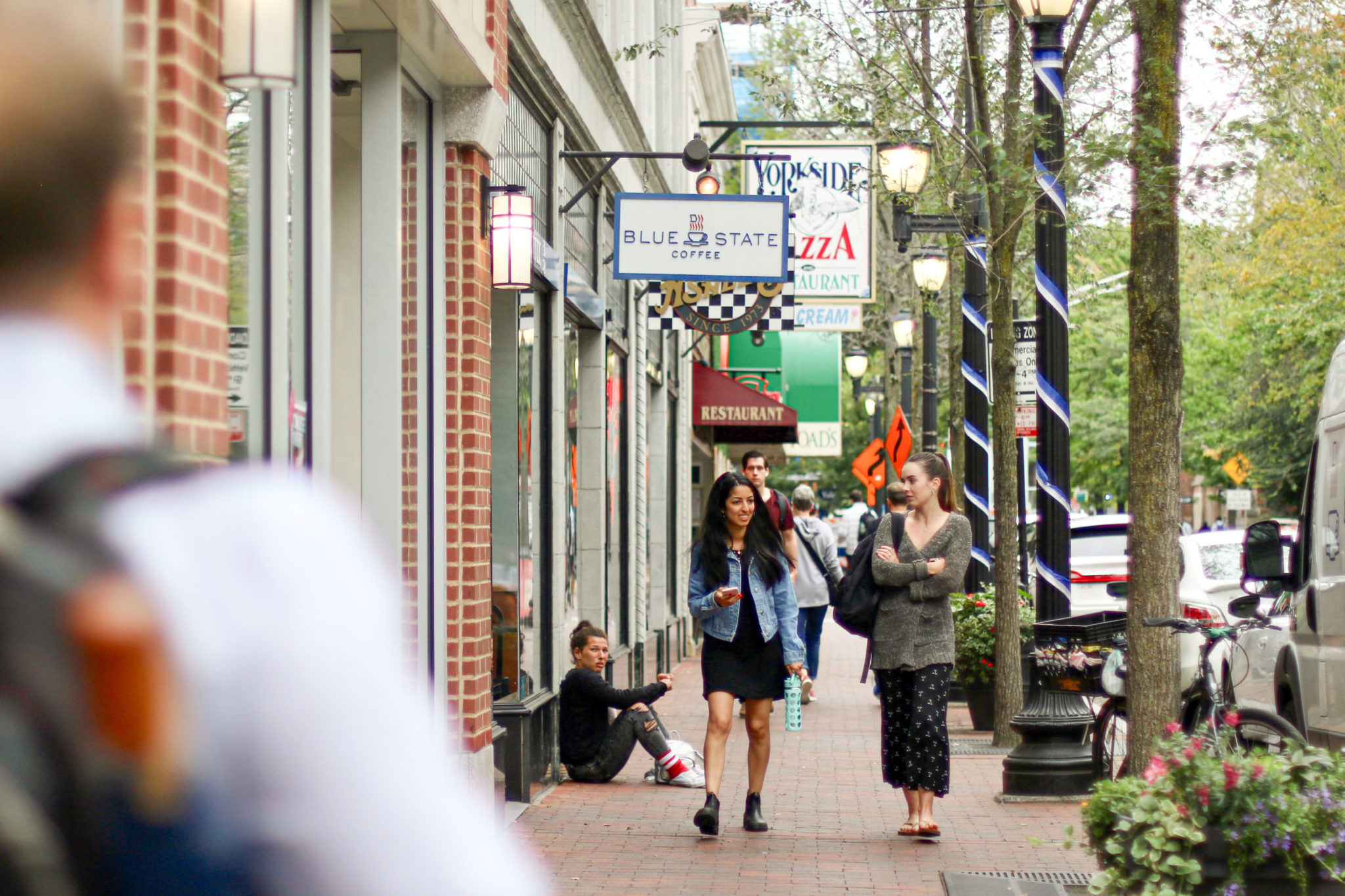
Natalie Kainz
New Haven residents cherished Doug Coffin ’76 and his pizza restaurant, Next Door, located by Jocelyn Square. The restaurant was known for its quirkiness — from its name, which refers to its emphasis on community, to its menu consisting of niche items like broccoli rabe and sausage pies. But, on Aug. 2, the restaurant served its last meal.
“I looked at the numbers and we realized we wouldn’t be able to make it. It wasn’t like other summers when things could turn around in September. We suffered a set of losses that would go all the way through until next summer.”
Next Door is just one of a few Elm City businesses shuttering in response to the economic devastation brought by the COVID-19 pandemic. After Governor Ned Lamont closed all non-essential businesses on March 23 and reopened on June 17 with strict social distancing guidelines, business owners scrambled to make up for lost revenue. The federal government sent help starting in April with its Paycheck Protection Program (PPP) loans, offering a glimmer of hope. While many businesses received the forgivable aid, some were still forced to lay off workers, downsize and ultimately, close shop. For businesses still staying afloat, there is no telling how much longer they can remain open.
“It’s definitely still very challenging and none of us know when there’s going to be scientific breakthroughs,” New Haven Chamber of Commerce President Garrett Sheehan told the News. “There’s kind of that uncertainty as well; ‘when is it going to get better?’ What is the biggest key is consumer confidence in the health issues and worrying about going to a restaurant.”
Of the list of eight known businesses that have closed over the past few months, most are restaurants and bars. New Haven residents will no longer be able to visit Next Door, The Beer Collective, Duc’s Banh Mi Shop, Chuan Du Hot Pot, Freskos, Fireside and Clark’s Family Restaurant — an over 40-year business and Yale tenant.
Each of these businesses left impressionable memories on their clientele. With the announcements of these business closures, comments flooded Facebook pages and other news pages alike. Customers reflected on how “Duc’s was such a bright spot in dark times” and Clark’s Family Restaurant was a “piece of [their] childhood.”
In an interview with the New Haven Independent, Duc Nguyen, the former owner of Duc’s Banh Mi Shop, explained his situation. Not only was he receiving zero orders on some days, but like The Beer Collective and other small businesses, Nguyen didn’t receive a federal PPP loan.
“Everyone took advantage with better lawyers and bankers,” he said. “All the big guys took all the money and ran. For little guys like me, I have little manpower and resources.”
Deputy Economic Development Director of New Haven Steve Fontana explained in an interview with the News that though the government tried to quickly help businesses on a short basis, their programs were geared towards larger businesses. In Fontana’s eyes, this meant employers with over 500 workers received a lot of the aid.
When applying for the PPP loan, Coffin said he found the application process “intimidating”. Next Door ultimately received the loan which has helped Coffin pay employees and utilities. But, he noted difficulty in retaining workers who stayed home on expanded unemployment benefits.
Even with the loan, retail shops like Nancy Shea and Todd Lyon’s Fashionista Vintage & Variety had to downsize. After laying off part-time workers, the business sustained itself by selling masks out of vintage materials and repurposed fabric, half of which they then donated. On top of that, the store relocated to a smaller venue in East Rock from its original location on Whitney Ave.
In order to adapt to the financial stress, the restaurant is in the process of reimagining its business model. This entails selling online, running small curated shopping events, reducing store hours and vending at events like farmers markets and concerts.
“We had to make ourselves COVID-proof,” Lyon explained. “We can keep going and we’re much better at selling online. But if COVID hadn’t happened we wouldn’t have done this… We have a wonderful collection — we spent 15 years building this.”
The only retail store that has permanently closed in New Haven is the flagship Ann Taylor store on Chapel Street. Its parent company filed for bankruptcy on July 23.
But despite the city’s slew of business closures, Fontana sees hope. He explained that many businesses close even in the best of times and, in fact, 2020 has seen even more businesses opening.
The list includes Somos Arepas, El Segundo, Hunan Ten Minute Noodle and 17 others across the city. Fontana noted that despite the disproportionate impacts of COVID on minority communities, many businesses opening in New Haven are owned by local women and people of color.
When asked about the government response, Fontana said the governor and the legislature have been “very careful, deliberate, methodical — they worked at pretty much the right speed,” he said. “I’m very proud of what my colleagues in New Haven have been doing to help bring things under control.”
Lyon and Coffin expressed similar content with how the local and state governments have handled the pandemic. In the meantime, Shea and Lyon will continue to run Vintage Fashionista and Coffin has moved his pizza truck business, Big Green Truck Pizza, to the old location of Next Door.
Fontana and Sheehan explained that the future of businesses in New Haven is ultimately dependent on the release of a vaccine and continued social distancing.
“It will push people to be more thoughtful and careful,” Fontana added. “You won’t see as much activity as you see at bars — people will be reserved to do that. If you can control the virus, you can go back to a semblance of what life was like before.”
According to a Moody’s/CNN analysis, Connecticut’s economy is functioning at 86 percent of what it was in early March, before the pandemic.







